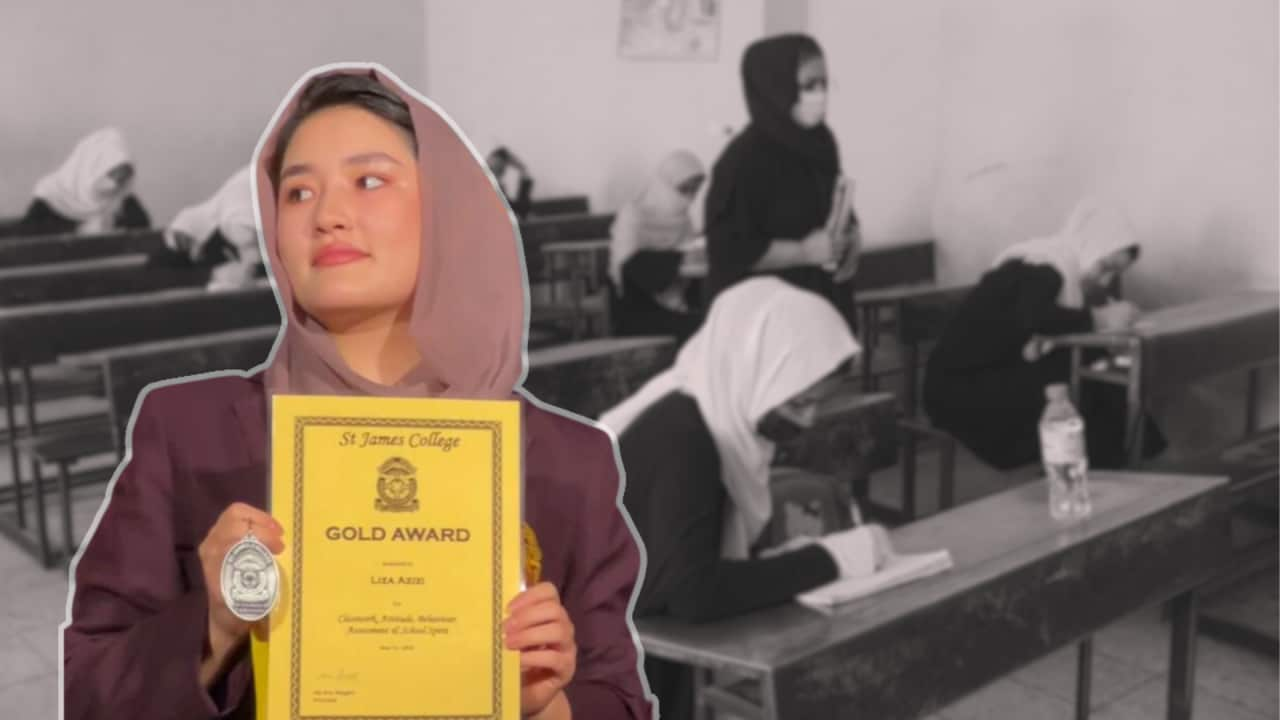Key Points
- Afghanistan is the only country in the world where millions of girls are prohibited from attending schools and universities.
- A Taliban spokesperson claims the ban is “temporary” while conditions in schools and universities are reviewed.
- Many Afghan women and girls say they have lost hope and maintain that access to education is their right.
Since the Taliban took control of Afghanistan in August 2021, they have imposed severe restrictions on women and girls, including banning them from attending schools and universities.
Taliban spokesperson, Zabiullah Mujahid, told SBS Pashto that the decision to ban women from education was not permanent and that they were working “to solve the matter” to make it possible for women to return to schools and universities.
“It is not that we ban women from education and don’t allow them, but it has been postponed for some time, and we are working on this to make a suitable condition for education,” he said.

Taliban spokesperson, Zabihullah Mujahid, was interviewed by SBS Pashto. Source: SBS
“If there are concerns, we have always said that it is a temporary ban and there is a work in progress, and we will not say that women will not be allowed to get an education, but we want to create the environment and conditions for it.”
In the past nearly two years, Taliban officials and universities for women and girls. However, Mr Mujahid said that they “have problems” and “the conditions are different” in Afghanistan.
“We initially thought this issue would be solved soon. Still, later when we realised the aspects around the issue, particularly the views of the religious scholars from rural areas, we thought to act cautiously,” he said.
Mr Mujahid said the Taliban "was concerned" that any move to restore education rights might be met with a "strong backlash from some opposition and the vast majority of people".
"We don’t want that because most of the people in Afghanistan will stand up against our government, particularly religious scholars who have a high place in our society. These are the reasons we are taking steps with caution,” he added.

The Taliban banned girls above the sixth grade from going to school. Source: AAP
‘We have lost our hope’
Sadaf* (name changed) is a third-year law student at a private university in Afghanistan who had expected to complete her bachelor’s degree this year but now said she had “lost hope” and did not see any “chance or opportunity” to graduate from university.
“We have lost our hope that we would go to universities and continue our studies," she said.
"Now, we hope that this government will change, and another government will come that will allow us to study.
“It is very sad for girls like us. (What have we done to) have been deprived of education for these two years (such that) we cannot go to universities?
“Islam allows a girl to study as much as she wants, but I don't know what they [Taliban] are thinking of not allowing us to study. We accept all the conditions imposed on us, if they [Taliban] say wear a hijab, wear a burqa, we accept these conditions, but we want the right to education.
It is a strange thing that they associate culture and tradition with education. Why should we link girls' education with the culture of a region? It is the right of a girl.Sadaf*
‘Afghan women are paying a high price’
Mohib Iqbal, president of the Afghan National Council Australia, told SBS Pashto that Taliban history showed that during their rule from 1996-2001, the “group has little interest in facilitating women’s education or work rights beyond a certain age.”
“While (the) Taliban has maintained that the ban on girls education is temporary, (they have) shown little interest in working on the constraints they think are stopping them from reopening girls’ education," Mr Iqbal said.
There are suggestions that (the) Taliban’s leadership includes individuals who believe women should not be educated beyond year six.Mohib Iqbal
“For those Taliban members who are opposed to girls' education, the reasoning is cultural and religious. However, globally, Islamic scholars have rejected the religious reasoning and Afghan people from all walks of life have called on the Taliban to reopen girls' education including some senior Taliban leaders.”

Mohib Iqbal, president of the Afghan National Council Australia. Source: Supplied / Supplied
“There are recent articles suggesting an increase in suicidal thoughts among Afghan women. Afghan girls are going to be denied education and as a result future opportunities.” he said.
“Afghanistan will see a significant decline in the literacy rates and professional women in the country. This will not only hinder the long-term economic potential of the country, but more importantly, in a few years, Afghanistan will lack women professionals in critical service delivery (areas) such as health care.
“Australia and the international community should pursue diplomacy and pressure the Taliban to re-open girls' schools. It should also invest in online education for Afghan women for which currently many organisations are working.”
‘The Taliban’s war on women’
says that since the Taliban’s return to power in Afghanistan, “they have imposed draconian restrictions on the rights of Afghanistan’s women and girls”, such as banning them from “education beyond primary school” and “jobs in the public sector”.
“The discriminatory restrictions the Taliban have imposed on women and girls violate human rights guarantees contained in numerous international treaties to which Afghanistan is a party,” the report said.
“At the same time, resistance against these policies has been met with intimidation, persecution and violence by the Taliban de facto authorities.
“Women participating in protests have been subjected to arbitrary detention, enforced disappearance, and torture and other cruel, inhuman or degrading treatment or punishment.“



